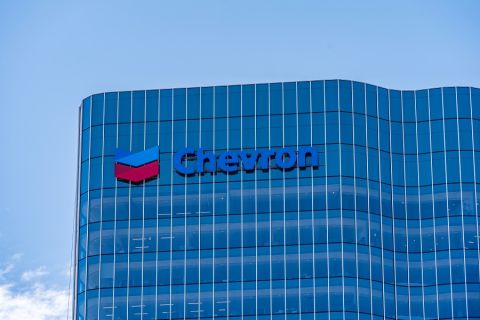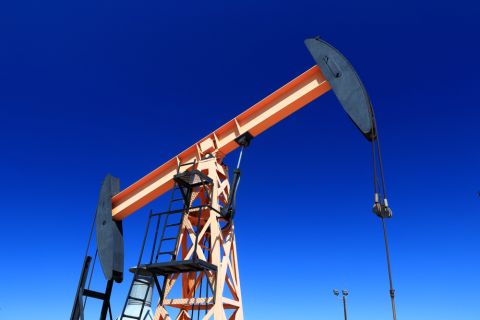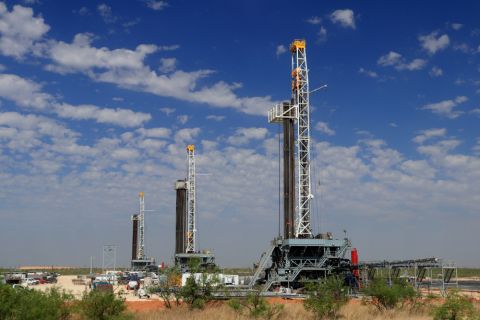Royal Dutch Shell Plc said June 30 it would write off assets worth up to $22 billion after the coronavirus crisis knocked oil and gas demand and weakened the energy price outlook.
The Anglo-Dutch company has already been preparing a major overhaul after CEO Ben van Beurden laid out plans in April to reduce Shell's greenhouse gas emissions to net zero by 2050.
Global travel restrictions to prevent the virus spreading affected more than 4 billion people at one point, taking cars off the roads and grounding planes, driving down fuel demand.
Shell, the world's largest fuel retailer, said it expected a 40% drop in sales in the second quarter from a year earlier to about 4 million bbl/d, although that is more than its earlier prediction of a drop to 3.5 million bbl/d.
In its update before second-quarter results on July 30, Shell said upstream oil and gas production was expected to average 2.35 million bbl/d in the three months to June, down from 2.71 million bbl/d in the first quarter.
Shell, which has a market value of $126.5 billion, said it would take an aggregate post-tax impairment charge of $15 billion to $22 billion in the second quarter.
Its shares were down 2% by 3:20 a.m. CT (8:20 GMT).
Credit Suisse analyst Thomas Adolff said the second quarter would be the toughest for many companies and Shell had sent a "wake up call."
Shell's move follows BP Plc's decision to wipe off up to $17.5 billion from its assets, as it responds to the coronavirus crisis and shifts to low-carbon energy.
Shell responded to the epidemic by cutting its dividend for the first time since World War Two and cutting spending in 2020 to a maximum of $20 billion from $25 billion. It aims to announce its restructuring plan by the end of 2020.
Lower Prices
Shell reduced its expected average benchmark Brent crude price for 2020 to $35/bbl from $60, and cut its 2021 and 2022 forecasts to $40 and $50, respectively, also down from $60.
Shell said its long-term oil price outlook was now $60. That compares to BP which cut its long-term Brent forecast to $55 from $70, while other rivals still have higher projections.
The Anglo-Dutch group cut its long-term refining profit margin outlook by 30% and set its long-term natural gas price at $3 per million British Thermal Units.
Shell's integrated gas business will account for $8 billion to $9 billion of the write-downs, while the upstream division will account for $4 billion to $6 billion. Downstream refining and marketing will account for another $3 billion to $7 billion.
The impairments will raise Shell's debt-to-equity ratio, or gearing, by 3%. Gearing stood at 28.9% at the end of March.
Recommended Reading
For Sale, Again: Oily Northern Midland’s HighPeak Energy
2024-03-08 - The E&P is looking to hitch a ride on heated, renewed Permian Basin M&A.
Chevron Hunts Upside for Oil Recovery, D&C Savings with Permian Pilots
2024-02-06 - New techniques and technologies being piloted by Chevron in the Permian Basin are improving drilling and completed cycle times. Executives at the California-based major hope to eventually improve overall resource recovery from its shale portfolio.
To Dawson: EOG, SM Energy, More Aim to Push Midland Heat Map North
2024-02-22 - SM Energy joined Birch Operations, EOG Resources and Callon Petroleum in applying the newest D&C intel to areas north of Midland and Martin counties.
CEO: Continental Adds Midland Basin Acreage, Explores Woodford, Barnett
2024-04-11 - Continental Resources is adding leases in Midland and Ector counties, Texas, as the private E&P hunts for drilling locations to explore. Continental is also testing deeper Barnett and Woodford intervals across its Permian footprint, CEO Doug Lawler said in an exclusive interview.
TPH: Lower 48 to Shed Rigs Through 3Q Before Gas Plays Rebound
2024-03-13 - TPH&Co. analysis shows the Permian Basin will lose rigs near term, but as activity in gassy plays ticks up later this year, the Permian may be headed towards muted activity into 2025.





